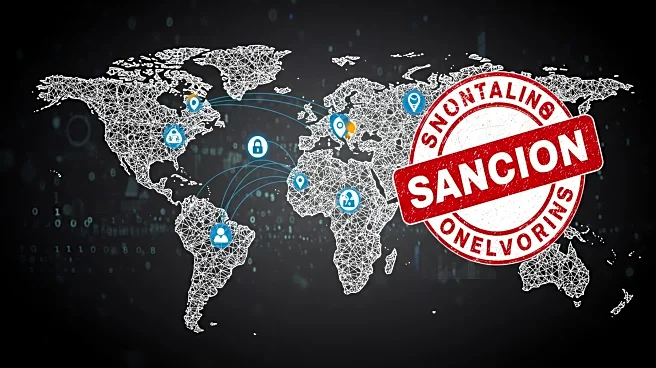What's Happening?
The Trump administration has announced new sanctions targeting entities involved in the Iranian oil trade. The U.S. Treasury Department has sanctioned 13 entities based in Hong Kong, China, the United Arab Emirates, and the Marshall Islands, along with eight vessels. These measures aim to disrupt networks transporting Iranian oil exports in violation of existing sanctions. The State Department has separately imposed sanctions on two China-based operators of oil-related terminals and storage facilities, Qingdao Port Haiye Dongjiakou Oil Products Co and Yangshan Shengang International Petroleum Storage and Transportation Co, for handling imports of Iranian oil aboard previously sanctioned tankers. These actions are part of a broader strategy to curb Iran's nuclear ambitions and its destabilizing activities abroad.
Why It's Important?
The sanctions are significant as they represent a concerted effort by the U.S. to extend its reach beyond Iran, targeting international facilitators of the Iranian oil trade. By sanctioning entities in multiple countries, the U.S. aims to cut off revenue streams that Iran uses to support its activities in the Middle East, including its nuclear program and proxy networks. The move could impact global oil markets, particularly affecting companies and countries involved in the trade of Iranian oil. It also underscores the U.S.'s commitment to using economic measures to influence international behavior and maintain pressure on Iran.
What's Next?
The sanctions may lead to increased diplomatic tensions between the U.S. and the countries whose entities have been targeted. Companies involved in the Iranian oil trade may seek alternative routes or methods to circumvent these restrictions, potentially leading to further sanctions. The U.S. may continue to expand its sanctions list, targeting additional entities and individuals involved in facilitating Iran's oil exports. The international community will likely monitor the situation closely, assessing the impact on global oil supply and geopolitical stability.










